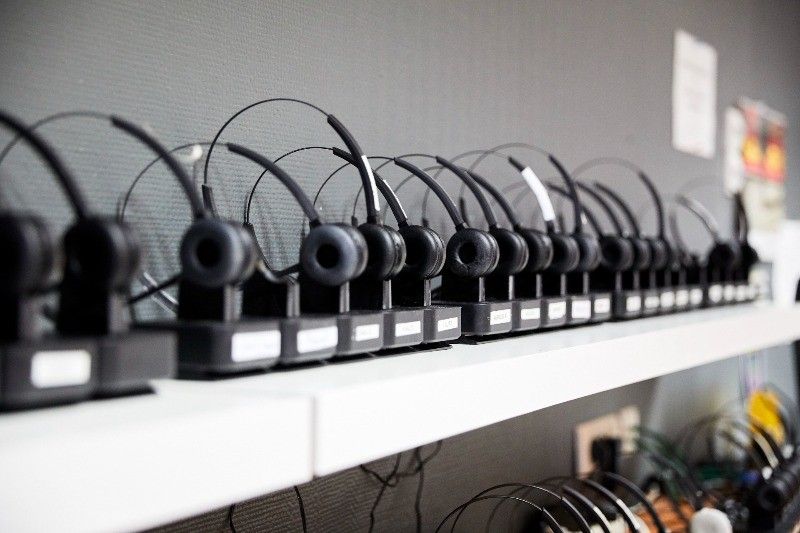Gov’t says no extension of work-from-home setup for call centers

MANILA, Philippines — Call center workers would have to return to the office next month after the government denied the request of many companies to allow their employees to work from home for much longer to give their business more time to recover and amid rising transport costs.
This means Information Technology-Business Process Management (IT-BPM) companies located in tax perks-giving economic zones can only implement remote work for 90% of their workforce until March 31 — a deadline that they were hoping to be extended to September 12 this year.
At a meeting last February 21, the Fiscal Incentives Review Board (FIRB) upheld its Resolution 19-21 that set the deadline for employees’ return to the office. Companies who would violate the resolution would risk having their tax breaks curtailed, a punishment that could potentially hurt their business and derail their recovery from the pandemic.
Explaining the government’s decision, Finance Secretary and FIRB Chair Carlos Dominguez III argued that the work-from-home setup “is only a time-bound temporary measure adopted during the surge of the Covid-19 pandemic.”
“Given the increasing vaccination rate of Filipinos nationwide, we can now undertake safe measures for physical reporting of employees, including those working in the IT-BPM firms operating within ecozones and freeports,” Dominguez said in a statement on Wednesday.
“The employees’ return to the office would provide more opportunities and pave the way for the recovery of local micro, small, and medium enterprises (MSMEs) that depend on IT-BPM employees for their livelihood,” he added.
The FIRB is in charge of policy making and overseeing the administration and grant of tax incentives. It was formed following the enactment of Corporate Recovery and Tax Incentives for Enterprises (CREATE) Act, which the Duterte administration touted as a “stimulus” measure that would help businesses recover from the pandemic by cutting corporate income tax while dismantling some tax perks deemed excessive and costly for the government.
READ: Duterte signs CREATE in hopes company savings fund recovery
At the onset of the pandemic, the government allowed IT-BPM companies to implement work-from-home arrangements without worrying about losing their fiscal perks in a bid to arrest virus contagion. The setup, in turn, helped the sector generate $26.7 billion in revenues and create1.32 million direct jobs in 2020 despite a pandemic-induced recession, data from IT and Business Process Association of the Philippines (IBPAP) showed.
Indeed, there is significant progress in the government’s vaccination program while infection rates have gone down since a resurgence last January that was fueled by the Omicron variant. But the FIRB’s decision came at a time of stubbornly high fuel prices amid the war in Ukraine. Already, transport regulators have been flooded with a slew of fare hike petitions that, if approved, could burden commuters.
In a statement, IBPAP President and CEO Jack Madrid said that while the industry supports the need to fully reopen the economy, the government should allow "a smooth transition to onsite operations."
Sough for comment, the Philippine Economic Zone Authority — the largest economic zone in the country with 4,658 locators, half of which are IT-BPM firms — said they would make another appeal to FIRB in light of rising transport costs. But this time, PEZA and IBPAP said they would propose a “hybrid model” combining physical and work-from-home setups, which they said was already adopted by India and other countries hosting a large number of contact centers.
"We will ask for a reconsideration, especially with the current increase of cost of oil, goods caused by the Ukraine war and the pandemic still threatening business,” PEZA Director-General Charito Plaza said in a text message. “We're waiting for IBPAP's proposed hybrid scheme which we'll support in PEZA to put order to the working schemes under the new normal."
“Ending the WFH abruptly is not fair to our locators like the IT-BPO considering their huge investments for the WFH equipment, etc," Plaza added.
- Latest
- Trending
































